The greatest of love stories: Panel shares Indigenous perspectives on the eclipse and astronomy
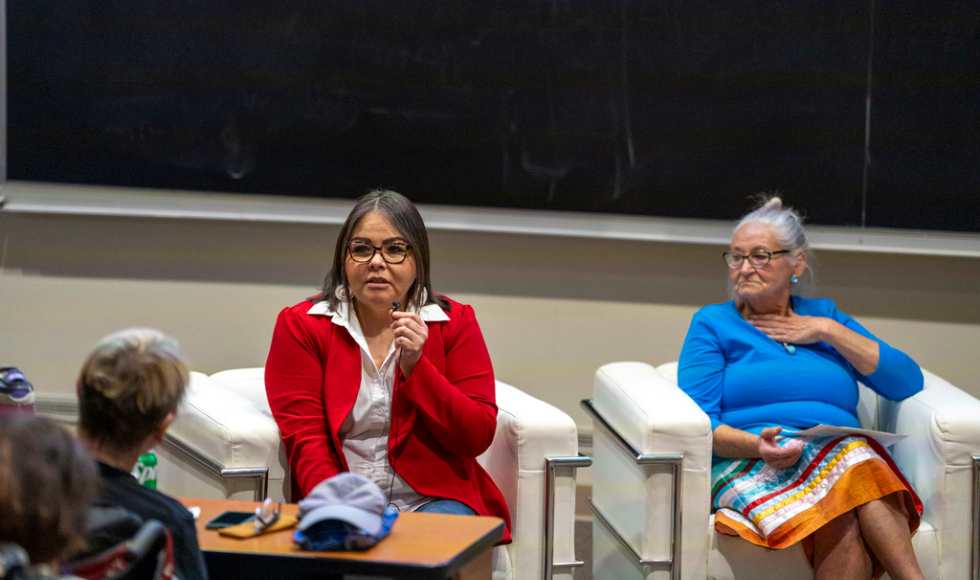
Vicki Monague, left, is Pottawatomi-Ojibwe Anishinaabe Kwe from Christian Island, of the wolf clan. She works as an Indigenous Studies and Ojibwe Language Instructor and Elder Katherine Knott is Crane or Shuggi, Jijakk clan of the Curve Lake First Nation, part of the great Mississauga Nation. Nokomis Kathy Knott, right, is an Elder-in-Residence at McMaster. (Photos by Georgia Kirkos/McMaster University)
Vicki Monague chose to stay inside during the total solar eclipse.
Monague, who is Pottawatomi-Ojibwe Anishinaabe Kwe from Christian Island, of the wolf clan, made eclipse plans to honour the teachings passed down from her grandmother and mother, and stay inside her home with her three children.
“I really want to make sure my children know why we don’t go outside during an eclipse,” she said during a panel discussion about Indigenous perspectives on eclipses and astronomy.
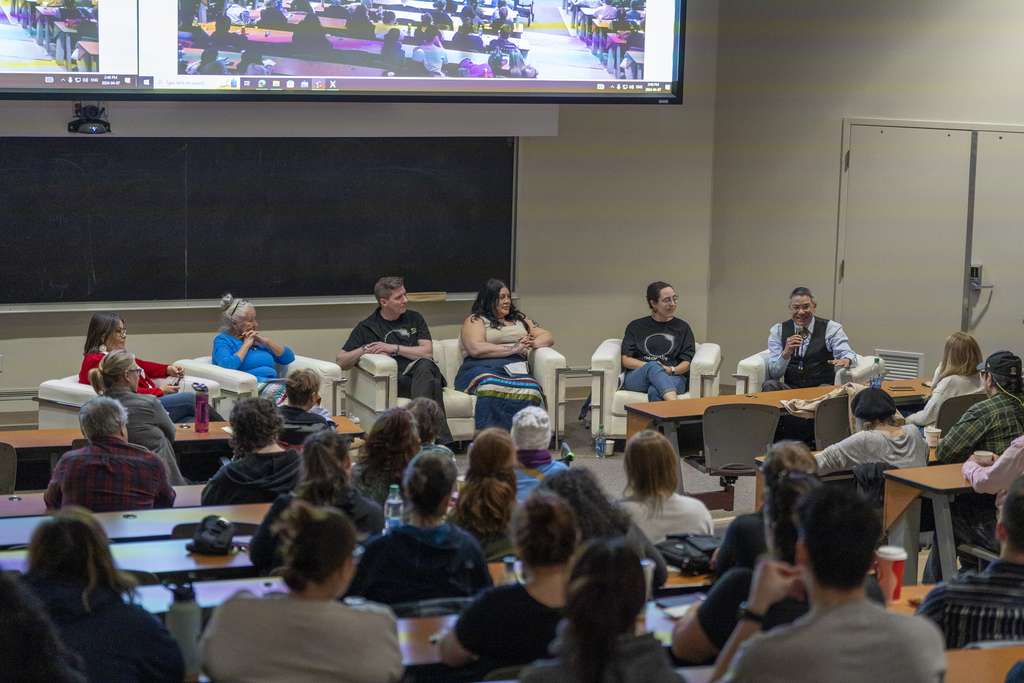
As a child at a residential day school, Monague was denied that choice. She left in the morning while her mother was covering all the windows and mirrors in their home. The non-Indigenous teachers passed out eclipse glasses, marched the students outside and told them to look up.
Monague’s parents were furious when they found out. “We were not supposed to ever look at the eclipse.”
She was told that an eclipse marks the reunion of Grandmother Moon and Grandfather Sun after decades apart. “It’s the greatest of all love stories,” Monague said.
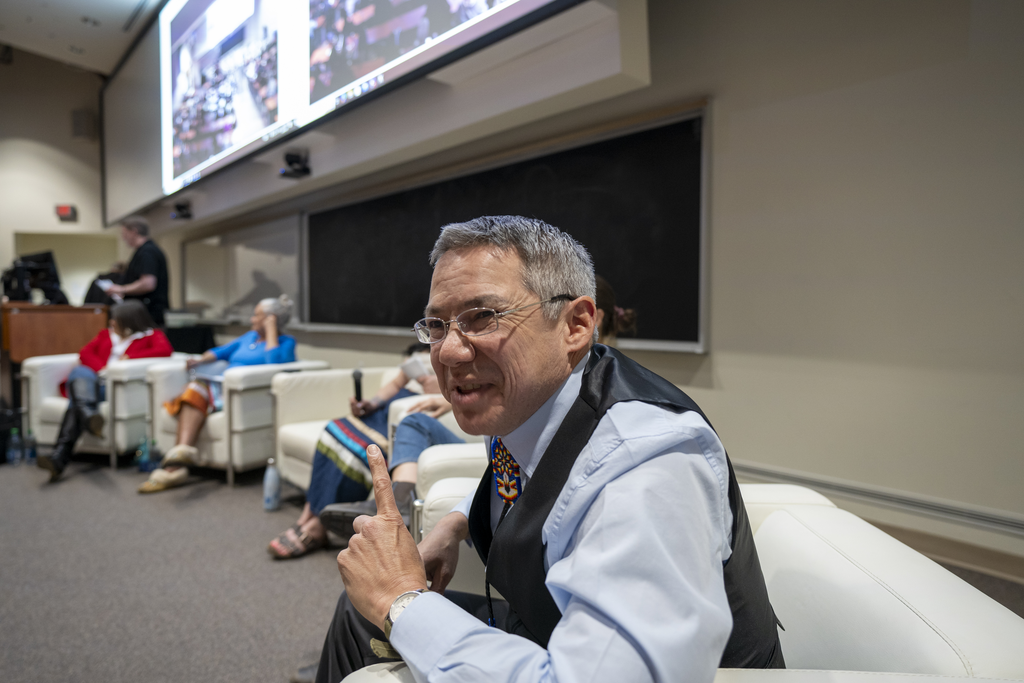
Monague shared her story during Indigenous Perspectives — Eclipse and Star Stories. She was one of five panelists providing Indigenous perspectives on eclipses and astronomy at Sunday’s event in the Michael G. DeGroote Centre for Learning and Discovery.
The event also featured Katherine Knott, who has been part of the Elder in Residence program at McMaster for seven years; Metis student and scholar Bonita Marie Bohnet; McMaster graduate Melanie Demers, who worked with Professor Laura Parker on galaxy group research; and scientist Corey Gray, who’s working on a Nobel Prize-winning astronomy project at Caltech and who recruited his mother, Sharon Yellowfly, to translate scientific documents into the Blackfoot language.
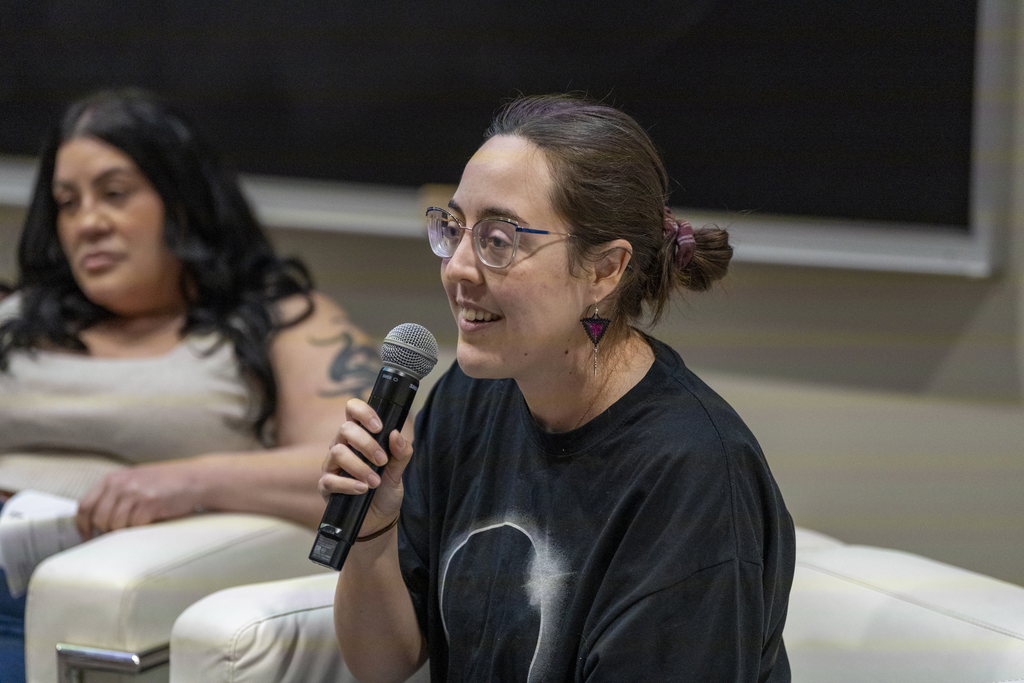
In her welcoming remarks, Knott said there are simple and clear lessons to be drawn from the April 8 eclipse.
“There will be light after darkness. Something new will happen because of the eclipse. And it is not for us to decide what next is.”
The final community event before the eclipse was among the very first initiatives planned by assistant professor Robert Cockcroft in the department of Physics and Astronomy. As he noted at the start of the lecture, McMaster shares both the land and the sky with the Mississauga and Haudenosaunee nations.
Cockcroft called the lecture an act of reciprocity, with panelists sharing their Indigenous knowledge and McMaster providing an opportunity for them to spend Monday afternoon in the path of totality.
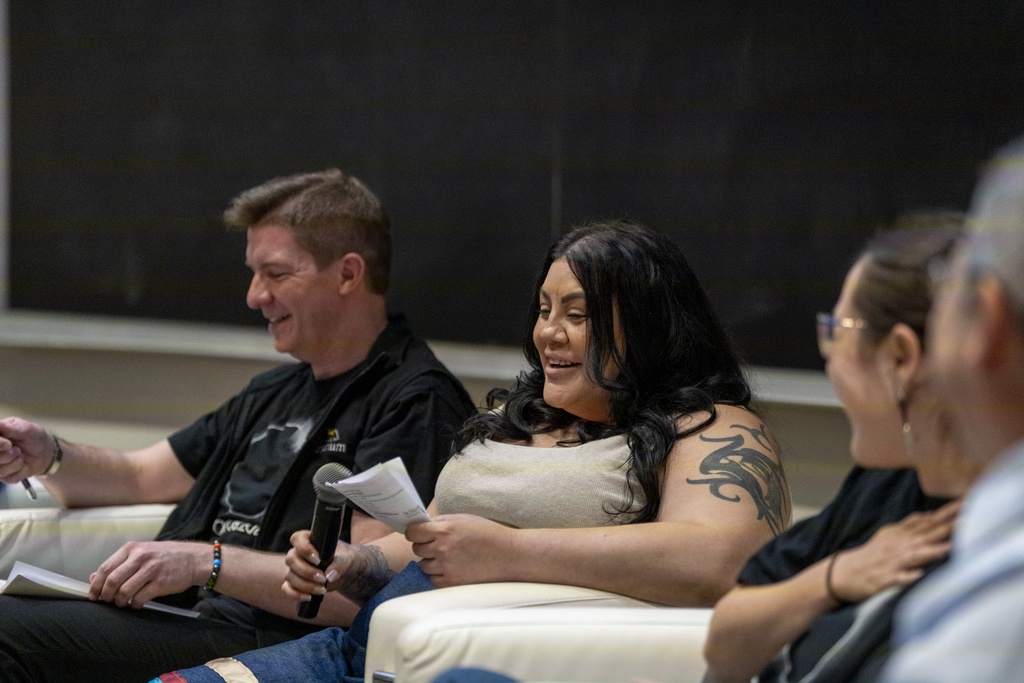
The event exceeded expectations and will continue building and strengthening collaborations with Indigenous scientists and communities, says Cockcroft.
For Monague, it was an opportunity to return to McMaster, where she worked with Cockcroft during the summer of 2021, conducting a meta analysis of Indigenous Star Knowledge and developing a curriculum for the Faculty of Science’s portable planetarium.
“McMaster changed my life so much,” Monague said about the eight-week Intensive Indigenous Undergraduate Summer Research Scholars program. “I gained a deeper understanding with the Celestial Spirit.”


